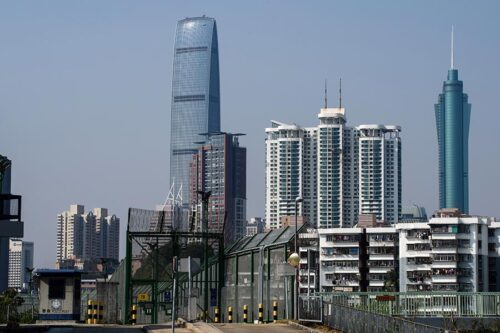>>REAL-TIME UPDATES IN THE WIRE. CLICK HERE<<<
As of September 11, the number of 2nd-hand home listings in China’s technology hub of Shenzhen stood at 54,966 units, a increase of 1,531 units from the previous week, said the Shenzhen Real Estate Intermediary Association, adding that homeowners’ intention to sell increased significantly.
Second-hand home transactions in Shenzhen reached 810 units last week, surging 26.4% from the previous week, according to the data.
Notably, last week was the first week after Shenzhen announced the policy to use home ownership instead of mortgage record to recognize first-home qualification. After the policy adjustment, second-hand home listings in some popular districts such as Nanshan and Futian nearly doubled the volume in August, according to Shenzhen Centaline Property.
In China’s financial hub of Shanghai, the number of listings of second-hand home in the first weekend after adoption of the policy of using home ownership instead of mortgage record to recognize first-home qualification surged by 65% from the average weekend level, according to local public data.
In Qingdao, East China’s Shandong province, recently removed all restrictions on home purchases and resales and on the first day after the announcement, second-hand home listings surged. Second-hand home listings in Qingdao rose to 109,012 units on September 11, compared to 104,540 units on August 28, according to data from Beike Zhaofang.
Separate data from Zhuge Zhaofang showed that second-hand home listings in China’s 10 major cities stood at 1.62 million units in August, rising by 1.97% from the previous month and surging 40.91% from a year earlier.
In August, second-hand transactions improved slightly, but home listings remained at high levels, it said.
The surge in second-hand home listings was because the adoption of the policy of using home ownership instead of mortgage record to recognize first-home qualification encourages homeowners to sell on home to buy a new one, said Li Yujia, chief researcher at the Guangdong Housing Policy Research Center.
He noted that if second-hand home transactions could not match the surge in listings, it could force some sellers to cut prices which could add pressure on second-hand home market.

